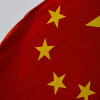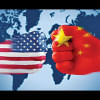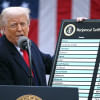Proper steps needed to address the US tariff crisis

We welcome the government's initiative to send two letters to the US administration—one to President Donald Trump and another to the US government's lead trade negotiation office—in response to its new "reciprocal" tariff regime imposed on all its trading partners. According to a report by this daily, the letters will outline policy measures to reduce bilateral trade imbalances that triggered the levying of a 37 percent tariff on imports from Bangladesh. This comes amid fears that the new policy, effective from April 9, may strike a blow to our export-based economy, particularly the garments sector, for which the US is the single largest market. As the world rushes to the negotiating table to deal with this latest setback, we must do the same to protect our industries and retain our competitiveness.
While talking to The Daily Star following a high-level meeting at the finance ministry, government officials and industry leaders appeared optimistic that if proper measures are taken, Bangladesh may not only weather this storm but also turn the challenge into an opportunity to diversify exports, streamline trade practices, and strengthen its position in the US market. This confidence comes partly from the fact that most regional trade rivals of Bangladesh face a heavier blow. In 2024, Bangladesh shipped $7.4 billion worth of garments to the US, making it the third-largest apparel supplier after China and Vietnam. Now, under the new US policy, China's total apparel tariff could reach 65.5 percent, while Vietnam's may rise to 57.5 percent. However, there remains doubt about whether the 37 percent tariff imposed on Bangladesh will replace existing duties or be added on top of them. If it is an additional tariff, the total duty on our garments could rise to 48.56 percent—up from the current average of 11.56 percent. We, therefore, must prepare for the worst-case scenario, although we will not know for sure until April 9.
Our response must be swift, strategic, and with the broader interests of the nation, including workers, in mind. One strategy that could prove effective is requesting a delay in the implementation of the new tariffs. Vietnam has already sought at least 45 days of relief from the US to allow room for negotiation and adjustment, even offering to reduce all tariffs on US imports to zero. Bangladesh should not shy away from making similar moves to adjust trade balances. While the commerce adviser has said that a deferral is unlikely at this stage, persistence may lead to rewards. Even a limited extension could give our exporters time to reorganise and adjust pricing strategies.
In this regard, we may also consider engaging experienced US-based lobbyists to support our case. Experts have also stressed the importance of expanding US imports of goods and services, broadening our export base beyond RMG, expanding exports to other markets beyond the US, and removing all tariff and non-tariff barriers to encourage greater bilateral trade.


 For all latest news, follow The Daily Star's Google News channel.
For all latest news, follow The Daily Star's Google News channel. 










Comments